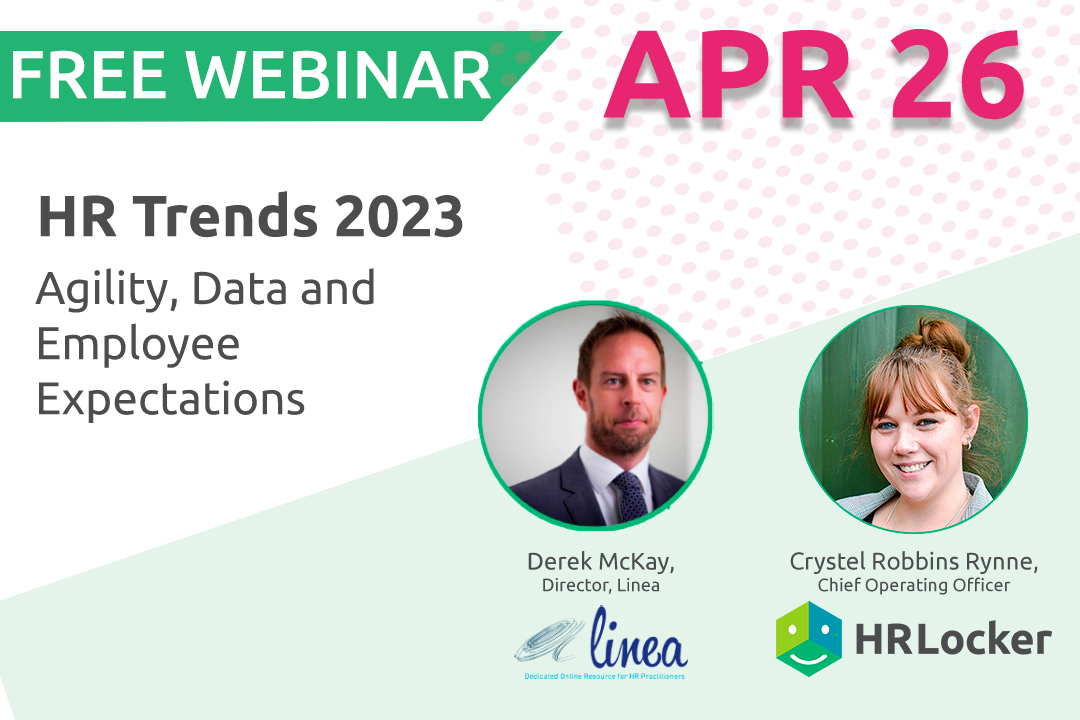HR Trends for 2023

As we move into 2023, the field of human resources is undergoing some significant changes driven by the increasing importance of agility, data, and employee expectations. In this blog post, we will explore some of the HR trends that are likely to emerge in 2023 in these areas. Watch our webinar on HR Trends for 2023:
Agility – Adapting to changing business environments
Agility has become a buzzword in the business world and for good reason. In a rapidly changing and uncertain environment, organisations that can adapt quickly to new circumstances are more likely to succeed. This is true for HR as well. Here are some of the trends we are likely to see in HR agility in 2023:
Agile Recruiting
With the rise of remote work and the growing importance of skills over degrees, organisations will need to be more agile in their recruiting processes. This will involve using new technologies and platforms to reach a wider pool of candidates and speed up the hiring process.
Agile Performance Management
Traditional performance management processes are often slow and inflexible. In 2023, we can expect to see more organisations adopting agile performance management processes that allow for more frequent feedback and coaching.
Agile Learning and Development
The skills needed in the workforce are changing rapidly, and organisations need to be able to adapt quickly. In 2023, we will likely see more organisations adopting agile learning and development processes that allow for more personalised and flexible training.
For more information check out our webinar with UCD Professional Academy:
Data – Artificial intelligence and Machine Learning
Data has always been important in HR, but in recent years, the amount of data available has exploded. With the rise of artificial intelligence (AI) and machine learning (ML), HR departments are now able to use this data to make more informed decisions. Here are some of the trends we can expect to see in HR data in 2023:
Predictive Analytics
Predictive analytics involves using data to make predictions about future events, such as which employees are most likely to leave, or which candidates are most likely to be successful in a role. In 2023, we can expect to see more organisations using predictive analytics in their HR processes.
Diversity, Equity, and Inclusion (DEI) Analytic
DEI has become a major focus for many organisations, and data can play a key role in driving progress in this area. In 2023, we can expect to see more organisations using data to track and measure their DEI efforts.
Keep an eye on our Linkedin in May where we will showcase the latest DE&I initiatives in HR.
Employee Engagement Analytics
Employee engagement has always been important, but it has become even more critical in the era of remote work. In 2023, we can expect to see more organisations using data to measure and improve employee engagement.
Employee Expectations – Attract and Retain Top Talent
Employee expectations have been changing rapidly in recent years, and organisations need to be able to adapt to these changes in order to attract and retain top talent. Here are some of the trends we can expect to see in employee expectations in 2023:

Flexibility
With the rise of remote work, employees are looking for more flexibility in their work arrangements. In 2023, we can expect to see more organisations offering flexible work arrangements to attract and retain top talent.
Purpose-Driven Work
Millennials and Gen Z are increasingly looking for work that has a positive impact on society. In 2023, we can expect to see more organisations focusing on purpose-driven work and social responsibility.
Well-Being
Employee well-being has become a major focus in recent years, and this trend is likely to continue in 2023. We can expect to see more organisations offering well-being programs and focusing on creating a healthy work environment.
In conclusion, as we move into 2023, HR departments will need to be more agile, data-driven, and focused on employee expectations to attract and retain top talent. By adopting these trends, organisations will be well-positioned to succeed in the rapidly changing business landscape.


